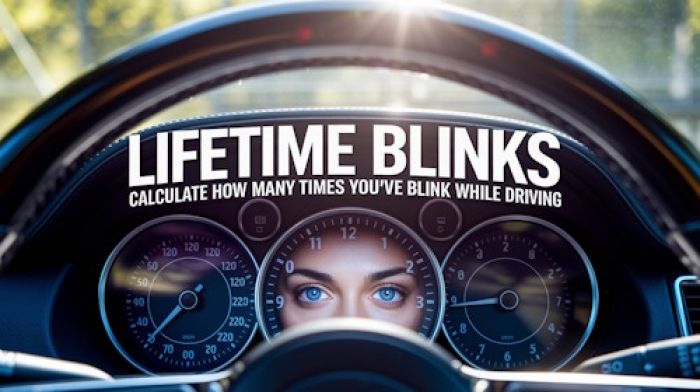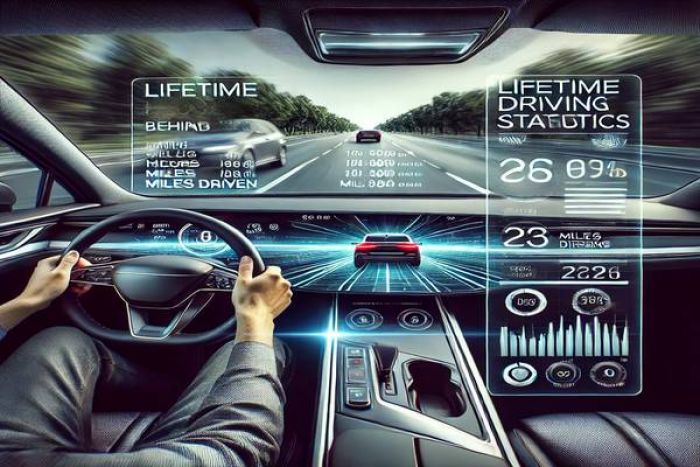There's a reason why the Toyota Camry continues to be one of the best-selling midsize sedans in the market year after year. Its winning formula comes in the variety of trim levels it offers that allow buyers to find the variant that's tailored to their budget, needs, and preferences.
In its basic trim, the Camry comes with a 2.5L engine that promises to deliver a combination of performance and fuel efficiency. In this article, we will show you whether or not it is any good.
.jpg)
Key features and my opinion about the engine
- Production years:2017-now
- Average lifespan of A25A-FKS:160,000-180,000 miles
- Fuel supply type:combined injection D4-S (direct + port)
- Power range:200-210 hp
- Fuel efficiency:good
- Engine block material:aluminum
- Engine reliability score:medium
- The most common problems:noisy work, EGR cooler leaks, EGR valve getting stuck, VVTi problems.
Key Specs of the Toyota Camry 2.5L Base Engine
The Toyota Camry we have now is the eighth generation of the series. The car also designated as XV70 was introduced in the automaker's key markets in Asia, Europe, Australia, and North America in 2017.
Starting off the lineup of the model is the 2.5-liter inline-four Dynamic Force Engine - A25A-FKS. The power unit is designed to complement the advantages brought forth by the Toyota New Global Architecture (TNGA-K) platform underpinning popular models such as the Camry, Avalon, and RAV4, among others.
The engine boasts high-speed combustion partnered with Toyota's signature Variable Valve Timing-Intelligence (VVT-i) technology. Together, they are capable of achieving higher thermal efficiency resulting in higher output. This is made possible by reducing energy losses associated with, among other things, exhaust and cooling systems and mechanical parts movement.
According to the Japanese automaker, the 2.5-liter engine has a thermal efficiency of 40% when applied in gasoline-powered vehicles and 41% when used in hybrid vehicles. The innovations also heavily contribute to high responsiveness and the production of ample amounts of torque at all speeds.
The 2.5L inline-four base engine of the Toyota Camry features a displacement of 2,487 cc with a double overhead cam (DOHC) layout possessing a total of 16 valves. It has an aluminum head and block with a bore of 87.5 mm and a stroke of 103.4 mm. Meanwhile, the compression ratio of the unit stands at 13.0:1.
The thermal efficiency generated by its configuration lets the engine achieve an output of up to 203 hp at 6,600 rpm and 184 lb-ft of torque at 4,800 rpm. Despite its pretty decent power ratings, the Camry suffers from a dismal 0 to 60 mph acceleration time of 8 seconds for its 3,310-lb frame.
The resulting fuel economy of the engine is estimated at 28 mpg in the city and 39 mpg on the highway. That's good for a 32 mpg combined fuel consumption, which is exactly a good number for a midsize sedan.
Toyota Camry 2.5L Base Engine Longevity
As one of the most well-regarded midsize cars available out there and combined with Toyota's quality control that highly focuses on durability, the Camry can be pushed to its limit between 200,000 and 300,000 miles before requiring an engine overhaul or replacement. If the numbers are applied to the average miles driven per year in the USA, that's enough to make your car last by 14 to 20 years.
It should be noted though that such numbers can only be attained with regular maintenance and practicing safe driving habits. Likewise, you should keep watch for any signs of problems with your engine, and have them diagnosed and repaired immediately to prevent them from getting worse.
Most Common Problems of the 2022 Toyota Camry 2.5L Base Engine
The 2.5L engine that comes with the 2022 Toyota Camry has garnered excellent reliability scores from various tests and customer reviews. However, that does not in any way make it trouble-proof.
Just like any other product out there, there have been some complaints about the power unit. The most common of which are the following:
1. Excessive Oil Consumption
Owners of the 2006 to 2011 models of the Toyota Camry have commonly whined about excessive oil consumption in their cars. According to them, their oil use went as much as a quart every 1,200 miles, which meant they had to top up their oil reservoir every now and then. As a response, Toyota issued a recall on the affected models in 2011 and offered to fix the problem free of charge.
Fast-forward to 2022, some users of the Camry have raised the same concerns. Based on careful research, the problem was typically traced to the oil piston assembly of the vehicle.
The oil piston assembly is a key component of an engine. It houses the pistons and rings that help seal in the combustion chamber, as well as provide a smooth surface for the piston to slide up and down on. Over time, the oil piston assembly can become dirty or damaged, causing it to lose its effectiveness. As a result, oil can begin to leak into the combustion chamber, leading to increased oil consumption.
If you're experiencing excessive oil consumption in your 2022 Toyota Camry 2.5L engine, there are a few things you can do to diagnose the problem. Start by looking under the car for any signs of oil dripping from the engine. If there are no leaks, then the problem is likely caused by an issue with the piston assembly itself. The best way to confirm this is to take the car to a mechanic and have them run a diagnostic test.
One solution is to have the assembly cleaned if carbon build-up is the only thing hindering it from functioning well. Normally, this is a major problem in aging cars but if you frequently ride yours in dusty, moist, wet, or any harsh environments, it should not be ruled out.
If the root of your troubles is indeed traced back to the piston assembly though, you may have to replace it. A piston set already includes oil pistons and piston rings, which should only cost you between $200 to $300. That may be dirt cheap, but the labor cost for the removal and replacement of the part will surely cost you.
Considering that most mechanics have an hourly rate of around $100 to $200, this kind of work that usually takes hours of professional labor may put your bill around the $800 to $2,000 mark. Nevertheless, that's still lower compared to the total cash that you will have to cough up with an engine replacement that will drive you back around $3,000 to $7,000, including the parts replacement and labor.
2. Engine Shuddering
Another key problem with the 2022 Toyota Camry has to do with its 2.5L A25A-FKS engine shuddering in between shifts. Technically, the engine should not be blamed for this because it is already a transmission issue. However, we think that there's a need to address this in order to give justice to the engine since the transmission is also crucial to its proper operation. According to mechanics familiar with the issue, this problem mostly stems from a faulty torque converter.
A torque converter is a fluid coupling that is used to transfer rotational force from a rotating input shaft to a rotating output shaft. In an automatic transmission, the torque converter is what allows the engine to continue running while the car is stopped with the brake pedal depressed.
When the torque converter is not working properly, it can cause the engine to shudder, lurch, or even stall when shifting. The problem is most likely to occur when shifting from first to second gear or from reverse to drive.
There are several reasons why the torque converter may not be working properly in the 2022 Toyota Camry. One possibility is that the converter is not properly installed in the engine. Another possibility is that there is something wrong with the transmission fluid. The fluid may be too old, too dirty, or low on levels.
If the torque converter is not working properly, the first thing that should be done is to check the transmission fluid. If the fluid is dirty or low, it should be refilled. If the fluid is old, it may need to be flushed and replenished with fresh fluid.
In some cases, the torque converter may need to be recalibrated or replaced if the part is the one causing all the trouble. The latter is a more serious problem that will require the help of a qualified mechanic. Again, the parts replacement may only cost you around $150 to $350 but the hours of labor required for it will easily add up a thousand to your expenses, give or take.
3. Electrical Issues
Like any other cars with complicated tech, a few units of the 2022 Toyota Camry have suffered from performance problems that can be directly related to electrical issues. The common culprits in this model are glitches originating from either the Anti-Lock Braking System (ABS) module or the powertrain control module (PCM). In some cases, both may be at fault here.
In a worst-case scenario, a faulty ABS may force your car to brake while you're driving, which certainly spells a safety hazard. On the other hand, a malfunctioning PCM may falsely trigger some safeguards that may limit your vehicle's acceleration.
These can be due to problems in the wiring, sensors, battery, or alternator. If those have been ruled out, you may have to have your PCM reflashed or upgraded to remove its errors and optimize its software. However, if the modules themselves are defective, a replacement should be the best course of action.
The parts and labor for each should only cost you north of a thousand dollars, but if the work takes longer than usual due to other issues that may be potentially affecting the function of the said components, that's another $100 added to the labor costs per hour.
Should You Buy the 2022 Toyota Camry?
The 2022 Toyota Camry is one of our best picks when it comes to a reliable midsize sedan due to its affordable pricing matched with pretty decent engine power, high fuel economy, and decades of durability. There are, however, issues that you should watch out for just like with any other car. Nonetheless, as shown here, the problems are manageable from the get-go, and the worst could only happen if you prolong them.
Keeping the 2022 Camry at its best guarantees you a whopping 200,000 to 300,000 miles of pure driving pleasure, so be sure to keep it maintained and always be on the lookout for possible signs of trouble to ensure these numbers.
About the authors
The CarAraC research team is composed of seasoned auto mechanics and automotive industry professionals, including individuals with advanced degrees and certifications in their field. Our team members boast prestigious credentials, reflecting their extensive knowledge and skills. These qualifications include: IMI: Institute of the Motor Industry, ASE-Certified Master Automobile Technicians; Coventry University, Graduate of MA in Automotive Journalism; Politecnico di Torino, Italy, MS Automotive Engineering; Ss. Cyril and Methodius University in Skopje, Mechanical University in Skopje; TOC Automotive College; DHA Suffa University, Department of Mechanical Engineering






Add comment